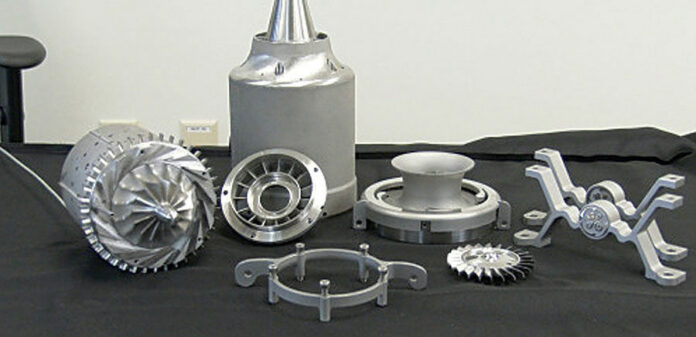The Applied Science & Technology Research Organization of America (ASTRO America), a not-for-profit that is working hard to advance the public interest through manufacturing technology and policy, is working on a project that will make it easy for small 3D printing vendors to supply three aerospace manufacturers: Pratt & Whitney, Honeywell, and GE.
Each of these aerospace companies has different processes for formally onboarding capabilities into their supply chains – validating that a new supplier or machine in their facility demonstrates repeatability, reproducibility, predictability, safety, and consistency in production.
Through this new project sponsored by the Office of the Under Secretary of Defense, Research and Engineering (OUSD(R&E)) and awarded via America Makes (the National Additive Manufacturing Innovation Institute), ASTRO America will lead the team of major jet engine builders to establish a “common additive manufacturing (AM) qualification template.” Rather than require small business vendors to go through a Pratt and Whitney -, Honeywell-, or GE- specific process (depending on the particular engine company-customer), the companies are working with ASTRO to harmonize an approach for prospective vendors to become eligible 3D parts producers.
“Metal 3D printing is becoming an essential part of manufacturing jet engines. But it’s still very hard to get particular additive machines and materials approved for production. It’s costly and time-consuming for small aerospace suppliers. Ultimately, this can end up keeping good businesses and products out of the supply chain,” said Neal Orringer, President of ASTRO America. “Now, for the first time, top-tier OEMs are coming together to address this problem and support broader adoption of AM and ASTRO is thrilled to lead this project and work with GE, Honeywell, Pratt & Whitney, and America Makes – and really make a difference.”
Why?
Qualification of Additive Manufacturing (AM) machines and materials is a major barrier for the broad adoption of AM. Generating the requisite data and models requires large investments of resources and time from small/medium businesses to produce a body of statistically significant data. Such a process usually requires generating coupons under a controlled process, testing the coupons, and analyzing the resulting data. Moreover, part vendors are required to supply substantially different data to each OEM, even when using the same manufacturing process. The OEM supplier qualification process, the requirements that are often held as proprietary information, could benefit from common requirements across application sectors such as Engine, Structural, and Mechanical Subsystems.
What?
The Common Additive Manufacturing Qualification Template (CAM-QT) will help address this problem. ASTRO received an award from OUSD(R&E) through America Makes to determine common Installation Qualification (IQ) and Operational Qualification (OQ) requirements of in-service metal AM parts accepted by design authorities of three engine OEMs as part of their individual qualification/certification efforts.
“We are excited to work with GE, Honeywell, and Pratt & Whitney to develop a set of common qualification requirements for AM suppliers that can lessen the burden on suppliers and pave the way towards greater adoption of AM technologies,” said Bill Tredway, ASTRO’s Senior Manufacturing Fellow and Principal Investigator for the CAM-QT project. “Small and medium size AM suppliers should be able to take advantage of a Common Qualification Template. The ripple effect will benefit the entire defense manufacturing supply chain.”
ASTRO will work with its partners to:
- Establish a plan and requirements for a common AM qualification template
- Generate a detailed AM qualification template, based on Systems Engineering methodology, that defines requirements sufficient to meet OEM needs for Operational Qualification (OQ) and Installation Qualification (IQ).
- Identify a specific material/ machine combination to demonstrate the common qualification template with analytic analysis conducted by ASTRO America.
- Review the analytic demonstration results with a Government Advisory Team comprised of leading AM officials from several federal agencies.
Remember, you can post free of charge job opportunities in the AM Industry on 3D ADEPT Media or look for a job via our job board. Make sure to follow us on our social networks and subscribe to our weekly newsletter : Facebook, Twitter, LinkedIn & Instagram ! If you want to be featured in the next issue of our digital magazine or if you hear a story that needs to be heard, make sure to send it to contact@3dadept.com



